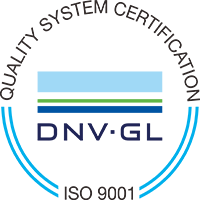MARINE & OFFSHORE EQUIPMENT
- Dredging Equipment
- Marine Deck Machinery
-
Marine Mooring Equipment
-
Marine Anchor
- AC-14 HHP Anchor
- Admiralty Anchor
- Beldt Stockless Anchor
- Bruce Anchor
- Spek Anchor
- Danforth HHP Anchor
- Delta High Holding Power Anchor
- GB11579-89 Light Weight Anchor
- Hall Anchor
- High Holding Power Mastrosov Anchor
- Hot Dip Galvanized Anchor
- Japan Stock Anchor
- JIS Stockless Anchor
- Pool Anchor
- Single Fluke Anchor
- Stainless Steel Anchor
- Stevpris MK5 Anchor
- Stingray Anchor
- US Navy Stockless Anchor
-
Marine Anchor Chain
-
Marine Shackle
- Kenter Shackle
- D Type Joining Shackle
- Pear Shaped Shackle
- Anchor Swivel Shackle Type A
- Anchor Swivel Shackle Type B
- Buoy Shackle Type A
- Buoy Shackle Type B
- C Type Detachable Connecting Link
- D Shackle
- Forelock Shackle
- Anchor Chain Swivel Group
- Straight Shackle
- Anchor Shackle
- Marine Triangle Plate
- Anchor Chain Swivel
- Anchor Chain Joining Shackle
- Anchor Chain End Shackle
- Slim Kenter Shackle
-
Chain Chaser
-
Marine Bollard
-
Marine Chock
-
Marine Fairlead
-
Marine Chain Stopper
-
Marine Mooring Reel
-
Marine Towing Bracket
-
Mooring Rope
-
Marine Towing Hook
-
Marine Shark Jaw
- Marine Fender
-
Marine Buoy
- Marine Floating Pontoon Dock
-
Marine Anchor
- Aquaculture Equipment
- Marine Outfitting Equipment
- Marine Propulsion System
-
Marine Painting
-
Marine Auxiliary Machinery
- Marine Air Compressor
- Marine Air Receiver
- Marine Sewage Treatment Plant
-
Marine Diesel Generator Set
- Marine Oil Water Separator
- Ballast Water Management System
- Marine Hydrophore
- Marine Calorifier
- Seawater Desalination Plant
-
Marine Oil Separator
- Marine Fuel Oil Supply Unit
- Marine Heat Exchanger
-
Marine Hot Well Unit
-
Marine Incinerator
-
Marine Boiler
-
Marine Valve
- JIS Marine Valve
- DIN Marine Valve
- ANSI Marine Valve
- GB Marine Valve
- CB Marine Valve
- CBM Marine Valve
-
Marine Gate Valve
-
Marine Globe Valve
-
Marine Angle Globe Valve
-
Marine SDNR Valve
-
Marine Angle SDNR Valve
-
Marine Check Valve
-
Marine Storm Valve
-
Marine Butterfly Valve
-
Marine Quick Closing Valve
-
Marine Fire Valve
-
Marine Self Closing Valve
- Marine Valve Accessories
-
Marine Pump
- Marine Centrifugal Pump
- Marine Screw Pump
-
Marine Gear Pump
-
Marine Vortex Pump
-
Marine Ejector Pump
-
Marine Diaphragm Pump
-
Marine Piston Pump
-
Marine Fire Pump
-
Marine Emergency Fire Pump
-
Marine External Fire Pump
-
Marine Ballast Water Pump
-
Marine Fuel Pump
-
Marine Lubricating Oil Pump
-
Marine Bilge Pump
-
Marine Sewage Pump
-
Marine Domestic Water Pump
-
Marine General Pump
-
Marine Cargo Oil Pump
-
Marine Hand Pump
- Marine Pump Parts
- Marine Life-saving Equipment
- Fire-fighting Equipment
- Marine Cable
- Marine Electrical Equipment
- Marine HVAC
-
Labour Protection Appliance
- Marine Decorative Material
-
Marine Anode
- Marine Pipe Fitting & Flange
- Marine Instrument
- Ship Building Equipment
INDUSTRY EQUIPMENT
- Hoisting Equipment
- Welding Machine & Material
-
Cutting Machine
- Container Securing Fitting
- Link Chain
- Container & Storage Equipment
-
Diesel Generator Set
- Other Equipment and Tools
- Petrochemical Equipment
- Fiber Reinforced Plastics
- Polymer Materials
- Environmental Protection Series
- Geo-products and Building Materials
- Metal Mesh
- Steel Grating
-
Earthwork Teeth
-
Turnbuckle
STOCK LIST
Contacts
 Tel:+86-23-67956606
Tel:+86-23-67956606
 FAX:+86-23-67956622
FAX:+86-23-67956622
 Email:manager@cqhisea.com
Email:manager@cqhisea.com
Working Time: 9:00--17:00
Working Day: Monday to Friday Website: www.cqhisea.com

Marine Controller

Marine Controller
General:
The Marine Controller is a vital component of marine vessels, serving as the central command and control system for various operations on board. It is an advanced electronic system that integrates and manages multiple functions, ensuring the safe and efficient operation of the ship or boat. The Marine Controller is typically found in larger vessels such as commercial ships, naval vessels, and offshore platforms.
The primary purpose of the Marine Controller is to monitor and control essential systems and equipment on board, including propulsion, navigation, communication, safety, and environmental control systems. It acts as a centralized hub, providing real-time data, control interfaces, and alarms to the crew, enabling them to operate the vessel effectively and respond to changing conditions.
Some key features and functions of a Marine Controller may include:
1. Propulsion Control: The Marine Controller manages the propulsion system, including engines, thrusters, and propellers. It allows the crew to control speed, direction, and maneuverability, ensuring precise and efficient vessel handling.
2. Navigation and Positioning: It integrates with navigation equipment such as GPS, radar, and electronic charts to provide accurate position and heading information. The Marine Controller may also assist in route planning and collision avoidance.
3. Communication and Information Exchange: The system facilitates communication between the vessel and shore or other vessels, utilizing radio, satellite, or other communication technologies. It also enables the exchange of essential data and information for operational purposes.
4. Safety and Monitoring: The Marine Controller monitors various safety systems, such as fire detection, alarm systems, and watertight door controls. It provides real-time information and alerts to the crew in case of emergencies or abnormal situations.
5. Environmental Control: The Marine Controller may regulate environmental factors onboard, including HVAC (heating, ventilation, and air conditioning) systems, lighting, and power management.
6. Data Recording and Analysis: It often includes data logging capabilities, recording various parameters such as engine performance, fuel consumption, and operational data. This information can be used for analysis, maintenance planning, and optimizing vessel performance.
The Marine Controller plays a crucial role in ensuring the safety, efficiency, and smooth operation of marine vessels. It empowers the crew with advanced monitoring, control, and decision-making capabilities, allowing them to navigate challenging conditions and respond to emergencies effectively.
Drawing:






